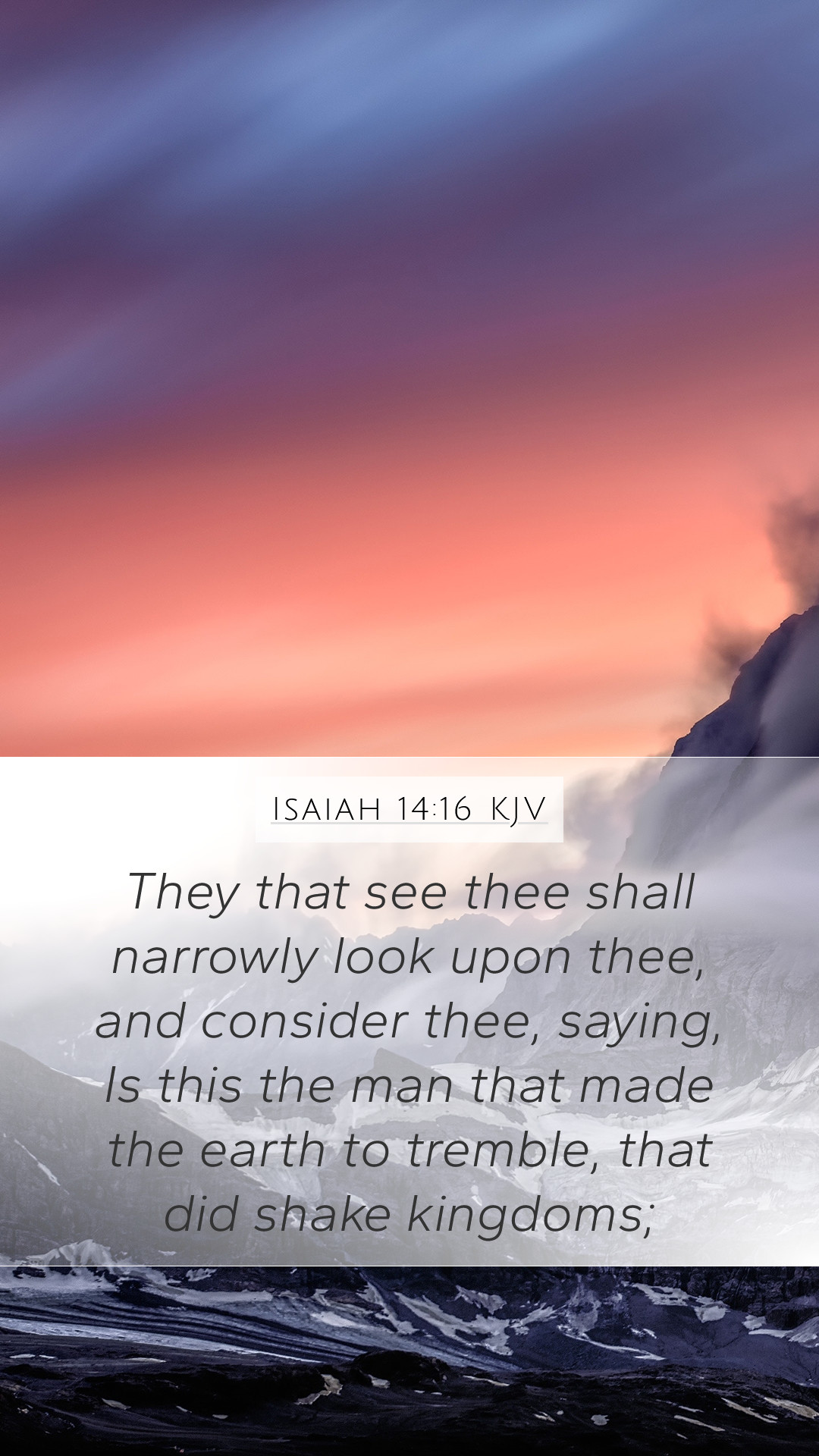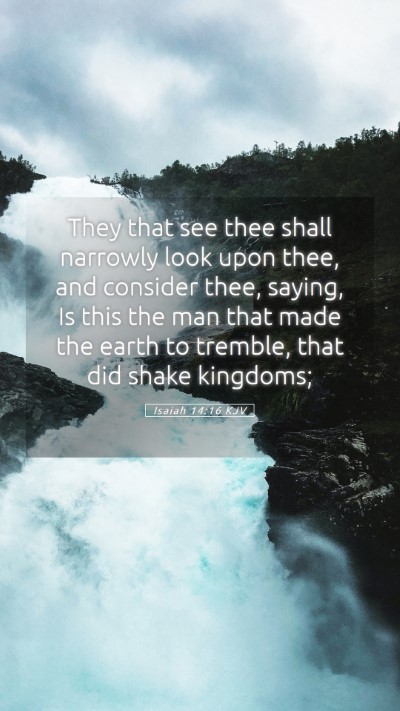Understanding Isaiah 14:16
Bible Verse: Isaiah 14:16
"Is this the man that made the earth to tremble, that did shake kingdoms?"
Overview and Context
The verse is part of a passage in Isaiah, which is often considered to address the fall of the Babylonian king, sometimes interpreted as a reflection on the pride and eventual downfall of Lucifer or Satan. This chapter portrays the ultimate downfall of oppressors, contrasting their former power with their rendered state of humiliation.
Combination of Insights from Public Domain Commentaries
Matthew Henry’s Commentary
Matthew Henry remarks upon the profound irony embedded in the text. The verse reflects on the shock and disbelief at the fall of one who was once mighty and seemingly invincible. This realization emphasizes that those who once instilled fear are rendered powerless, highlighting the sovereignty of God over earthly rulers.
Albert Barnes’ Commentary
Albert Barnes focuses on the rhetorical nature of the question posed in the verse. It serves as a stark reminder of the transient nature of power and glory. The emphasis lies not merely on the fall itself but on how the fallen is now viewed by others; once a formidable figure, now compared to the most common men. It implies that God’s judgment is absolute, rendering worldly power ineffective.
Adam Clarke’s Commentary
Adam Clarke elaborates on the historical context, pointing out that the verse King is a metaphorical representation of the oppressor. He emphasizes the public reaction to this fall, where the once-mighty figure is laid bare before the nations, inviting sarcastic pity rather than admiration. Clarke notes this moment captures the judgment of God against pride and oppression.
Key Themes and Takeaways
- The Fall of the Proud: The verse illustrates how pride ultimately leads to downfall, a recurring biblical theme.
- Transience of Earthly Power: The once mighty ruler is now powerless, teaching that earthly authority is temporary.
- Divine Justice: This passage affirms the belief in God’s ultimate control and justice over human affairs.
Cross References
- 2 Thessalonians 2:8: Discusses the lawless one being revealed and destroyed, paralleling the fall of evil rulers.
- Psalms 37:10: "Yet a little while, and the wicked shall not be..." emphasizes the fleeting nature of evil.
- Revelation 17:12-14: Conveys the downfall of the beast, a symbol of opposition against God.
Application and Reflection
For those studying Scriptures, particularly Bible study groups or individuals engaged in online Bible study, this verse invites deep reflection on the nature of power and justice. It serves as a reminder to remain humble before God and to understand that all authority is ultimately derived from Him.
Conclusion
Isaiah 14:16 serves as a poignant reminder of the transience of human glory and the enduring nature of divine authority. The thorough scripture analysis provided by various commentators offers enriched insight into the significance of this text, making it a valuable subject in Bible study materials, guides, and lessons.


